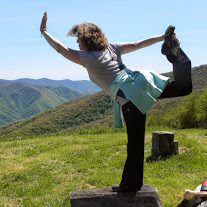One of my beloved supervisors and mentors had been a taxi driver in New York City in his early life. His metaphor for being a therapist was that of a cabbie: someone tells him where they want to go and he determines the route to get there. For the client, it requires considerable trust and flexibility. If I were to pick the one characteristic that people are challenged to develop when they begin therapy, it would be to stay flexible. This is largely because most people come in when they feel “stuck.”
Being a therapist means that I listen to people on many levels: literally and metaphorically—working to understand how they see the world and themselves.
The opposite of flexibility is rigidity. When we think of being rigid, we intuitively know that is not good for us. From ancient Chinese proverbs to Greek mythology and later, European fables, the saying “better bend than break” has become a common wisdom.
In 2012, Ping Fu, a Chinese-American scientist and entrepreneur, stated “Bamboo is flexible, bending with the wind but never breaking, capable of adapting to any circumstance. It suggests resilience, meaning that we have the ability to bounce back even from the most difficult times. . . .” In her memoir, Bend, Not Break: A Life in Two Worlds, Fu talks about her “messy life” and our need to adapt our attitudes to our life circumstances in order to develop resiliency (see LiM2 Skill #9) and ultimately, to thrive.
I often recommend a practice of yoga to clients; invariably, they immediately laugh and respond with “No—I’m not flexible at all.” It’s amusing that they first think of the physical aspects of yoga. We have such a gym mentality in our culture! In fact, I am usually considering their mental life.
 It is true, however, that most health advocates DO, in fact, believe that our physical flexibility protects us from many ills of aging. Tight muscles. Stiffness. Reduced range of motion. Pain. Yoga does increase flexibility, reduces joint tension, improves circulation, and lengthens muscles. Staying physically flexible is, very simply, a good health practice.
It is true, however, that most health advocates DO, in fact, believe that our physical flexibility protects us from many ills of aging. Tight muscles. Stiffness. Reduced range of motion. Pain. Yoga does increase flexibility, reduces joint tension, improves circulation, and lengthens muscles. Staying physically flexible is, very simply, a good health practice.
Mental flexibility allows us to think creatively.
If we are rigid, we believe there is only one way to do something. If we are able to adopt a flexible attitude, we can look outside our familiar box for new alternatives. Sometimes known as “fluid intelligence”, the ability to reason in a fluid manner, gives us more options. It’s about our ability to adjust.
When it comes to dealing with the messiness of life, we need all the help we can find. The work of therapy is often to help folks develop different coping skills. Therapists know that even the best coping mechanism, when used exclusively, begins to fail. That single-minded approach can create new problems. For example, teaching people in acute emotional distress to distract themselves to reduce over-arousal is important; but it’s clear that if we approached every problem or emotion using distraction, we would be in all kinds of trouble. We would be stuck again.
Occasionally, headed home after a long day, I take a different way just to look at new streets, different houses and newly-planted gardens. Like my taxi driver-turned-therapist mentor suggested, there are many routes on this messy journey of life. I will tell you that some ways have more marvelous views than others. Sometimes we just need new alternatives. Do you find yourself stuck? Maybe you need to consider a different approach.
So, Stay Flexible because Life is Messy and Life is Marvelous.


Good write-up. I absolutely love this site. Stick with it!|